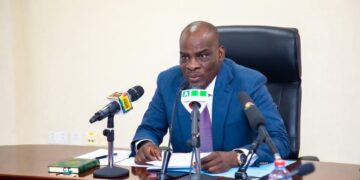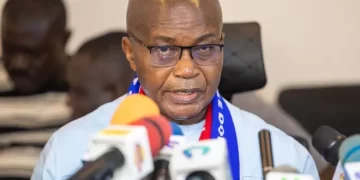 Tamale South Member of Parliament, Haruna Iddrisu, has hinted at plans to submit recommendations regarding the controversial LGBTQ Bill to President John Mahama.
Tamale South Member of Parliament, Haruna Iddrisu, has hinted at plans to submit recommendations regarding the controversial LGBTQ Bill to President John Mahama.
While he refrained from disclosing specific details of the proposed recommendations, he expressed confidence that the suggestions would align with national interests to shape the bill.
Speaking ahead of the National Muslim Prayer and Thanksgiving at the national mosque on Friday, January 10, 2025, the Tamale South MP said: “I have some ideas on the LGBTQ but I am yet to share them with the president as to how he can re-own the bill, get national consensus around it and be consistent with the laws of Ghana and the constitution.
“There is a way to deal with it. Commenting here will mean that I am reducing it to a religious matter, but indeed it is a social problem of our country that collectively we have to deal with and solve,” he stated.
The controversial Human Sexual Rights and Family Values Bill aims to criminalise activities associated with lesbian, gay, bisexual, transgender, queer, and intersex (LGBTQI) advocacy. If passed into law, it would impose penalties on individuals promoting or funding LGBTQI-related activities, as well as those providing indirect support.
Proponents argue the bill is necessary to protect Ghanaian cultural and family values, which they claim are being undermined by foreign ideologies.
Conversely, critics, including human rights groups, condemn the bill as a violation of fundamental human rights, such as freedom of expression, association, and equality under the law.
However, the bill was challenged separately at the Supreme Court by broadcast journalist Richard Dela Sky and Dr Amanda Odoi, who both argued that the bill failed to meet the constitutional quorum requirements outlined in Articles 102 and 104 during the legislative process, rendering the bill’s passage unconstitutional.
Supreme Court Ruling
The Supreme Court dismissed both petitions on the grounds that the bill had not yet become law. Justice Lovelace Johnson clarified that until a bill receives presidential assent, it does not constitute an enactment subject to judicial review of its constitutionality.
The decision underscores the court’s position that legislative processes cannot be challenged on constitutional grounds until they result in enforceable law.
























